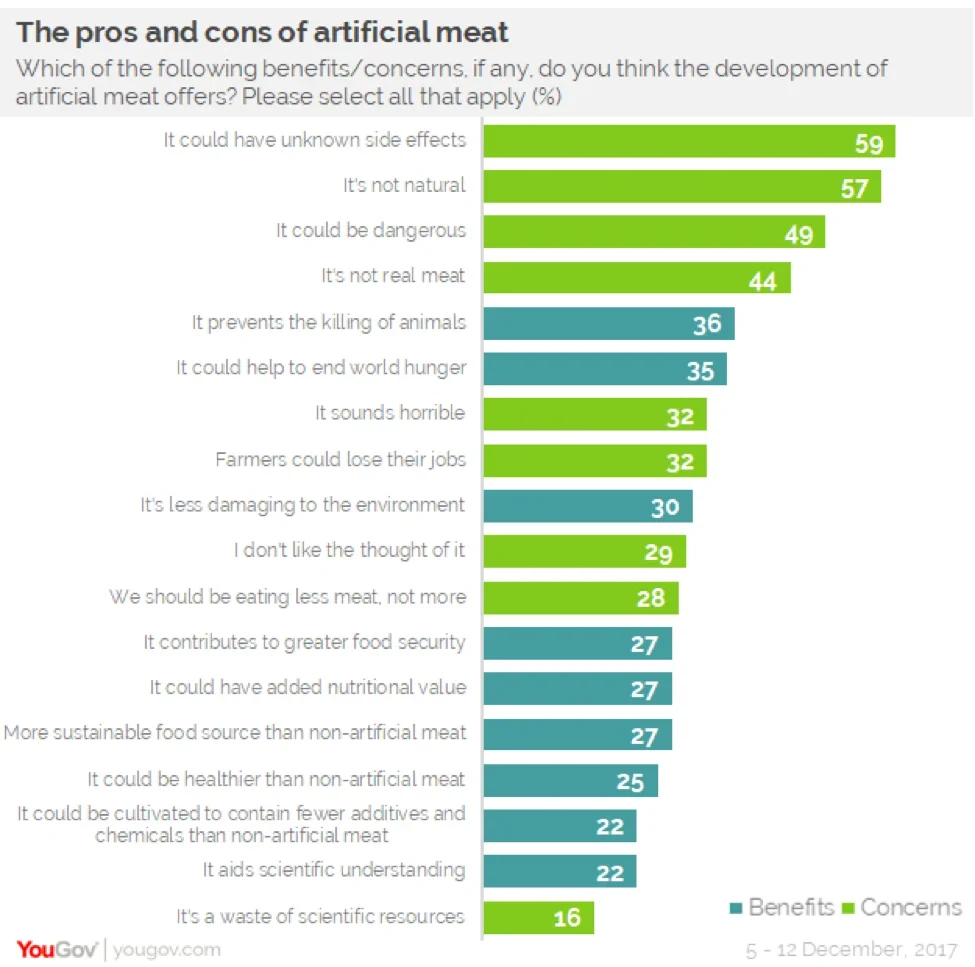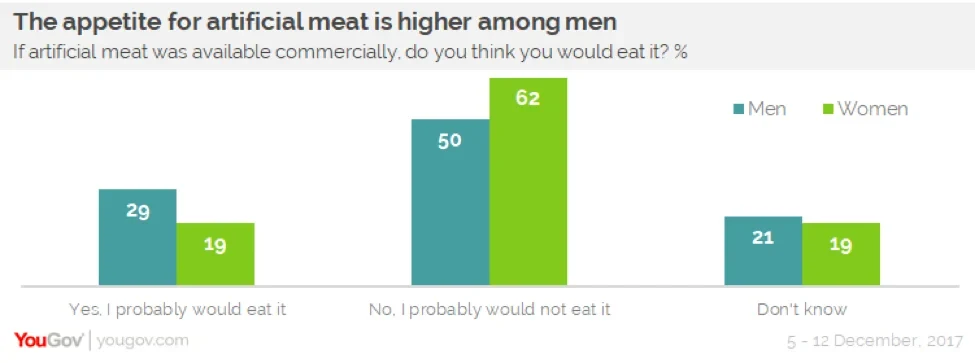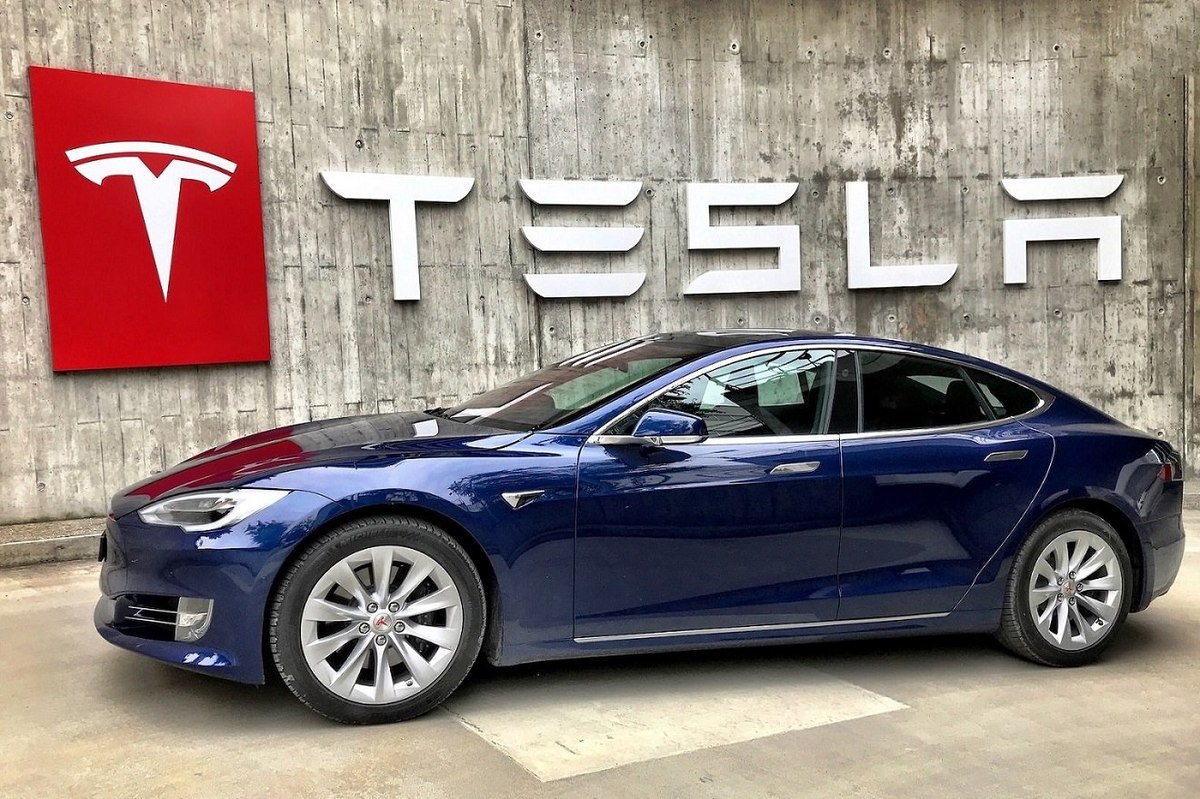
No demand for fake meat
Half the public ‘would probably not eat’ artificial meat grown in a laboratory – but men are more likely to try it
Much has been made of the advancements in lab-grown meat as a means of meeting the rising demand for meat products. Indeed, the industry has attracted support famous philanthropists such as Bill Gates and Richard Branson, who believe that cultivating such products can reduce the negative impacts to the environment, animal welfare and human health that arise as a result of conventional meat production.
New YouGov research reveals what the public really think about artificial meat. The research finds that some consumers see benefits from the technology, recognizing its potential to tackle the ethical and environmental problems meat production poses. The most widely-perceived advantages are that it prevents the killing of animals (36% believe this to be the case), it has the potential to end world hunger (35%) and it is less damaging to the environment than conventional meat production (30%).
However, the public do have some concerns, most notably about the potential side-effects of artificial meat. Three-fifths of consumers (59%) are worried about this, and 49% are concerned that it could be dangerous. Some also object to the fundamental principles behind its development; 57% worry that it’s simply not natural and 44% are concerned that it’s not real meat.

Men are more inclined to try artificial meat than women are
Half (55%) of Malaysian adults say they ‘would probably not eat’ artificial meat when asked to imagine it was available commercially. A quarter (25%) ‘probably would eat’ the meat, while a further 20% haven’t made up their mind.
Men are considerably more likely to say they would eat fake meat than women. Three in ten (29%) men say they would be open to eating lab-grown meat; considerably more than the 19% of women who say the same.

Vietnamese consumers are the most open to eating artificial meat
Compared to the wider region, Malaysians are the least likely to say they would probably eat artificial meat (25% say they would). Vietnamese consumers are the most likely to say they would try it (52% say as much), followed by Thai (34%) and Indonesian (33%) consumers.
Commenting on the findings, YouGov’s Head of Omnibus, Jake Gammon, said, “Pioneers of artificial meat have been working hard to drive production costs down to make such products more accessible to consumers. However, this research suggests that there is one final hurdle that manufacturers still need to tackle… consumer demand. Despite widespread exposure, consumers still appear sceptical about artificial meat. Unless they have their fears assuaged and are clearer on the potential benefits of such technology it will be an uphill struggle for producers ahead.”
*Data was collected online by YouGov Omnibus between 5 and 12 December 2017 among 942 respondents in Malaysia. Results are representative of the adult population.
Photo source: Getty Image

































